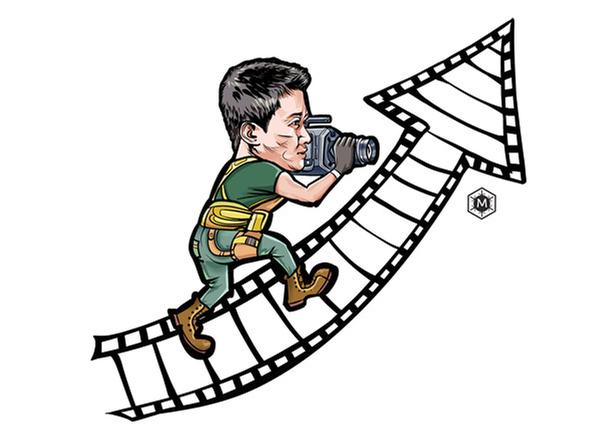A successful warrior in Chinese films
By Yang Jinsong | China Daily | Updated: 2017-08-18 07:21
 |
| MA XUEJING/CHINA DAILY |
Being a commercial venture and basically an action flick aimed at attracting audiences to the cinema, the movie starring and directed by Wu Jing complies with the rules of commercial films.
The story revolves around a former People's Liberation Army SWAT soldier's adventure in Africa who helps several dozen Chinese nationals as well as locals to flee a wartorn and plague-ravaged country, and his personal revenge for the death of his fiancée.
The "love in danger" scenario is used to stir emotions, while friendship, patriotism and humanity all play significant roles in the movie.
When Leng Feng, the protagonist, helps workers of a Chinese factory in Africa to flee the place, he makes sure women and children are helped first irrespective of their nationality, advocating universal values rather than nationalism. Leng does raise the banner of nationalism, patriotism and heroism when toward the end of the film he holds aloft the Chinese national flag while crossing a battlefield where two African armies are locked in a fierce battle.
Indeed, the tense plot, fantastic fighting scenes and exotic African landscapes lift the film to a higher level compared with previous Chinese productions. And although the story of Wolf Warriors II is fictional, the characterization of Leng is believable.
Before venturing into Africa, the film provides viewers with some background on Leng. As a serving soldier of the PLA's special wing, when Leng visits the hometown of his martyred comrade-in-arms to condole with his family in their loss, he sees a local bully and his cohorts trying to demolish their house. Leng fights the goons in violation of military discipline, for which he is dismissed from the PLA. The subplot makes the film and the character both seem real.
Wolf Warriors II takes audiences through nightmarish situations before good triumphs over evil, restoring people's faith in love, hope, peace and justice.
In the first half of this year, Chinese movies' average box office was far below that of Hollywood films. This makes the success of Wolf Warriors II even more important for the Chinese film industry.
Hollywood movies revolving around heroes always promote nationalism, as more often than not we get to see the stars and stripes fluttering at the climax. The recent India blockbuster Dangal, too, used the Indian national flag and national anthem representing renunciation, truth and national unity to great effect. And the US-Europe joint production, Dunkirk, depicts love and despair, as well as victory and peace during World War II with aplomb.
Similarly, Wolf Warriors II uses the Chinese national flag to promote patriotism among Chinese audiences, and it is perhaps the first movie to do so with great success. There is no reason, however, to attribute the film's success at the box office to the ongoing military standoff between China and India in a delimited sector of the China-India border.
Wolf Warriors II has achieved unprecedented success because of its sleek production, professionally filmed fight scenes, believable storyline and technical finesse. And by surpassing the box office collections of any Hollywood film on show in China in the past 23 years, Wolf Warriors II has set a high standard for Chinese films.
Although Hollywood movies remain the dominant force in China's film market, the success of Wolf Warriors II gives us some hope about the future of Chinese films.
Thanks to international trade rules, Hollywood movies have become the dominant force in many countries' film markets. In Asia, only Indian and South Korean movies can compete with Hollywood flicks in their respective markets.
But now, thanks to Wolf Warriors II, we can expect domestic audiences to lap up Chinese films with high artistic values, good storylines and professional production qualities.
The author is a film critic.
























